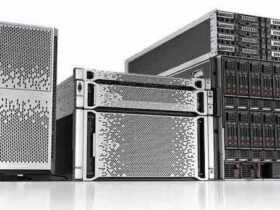High importance is attached to network firewalls in guaranteeing the safety and protection of computer networks. The purpose of them is to act as a fence between trustworthy and non-trusted ones, manage and monitor traffic movement for unauthorized access interdiction, cyber security threat protection and compliance with organizational security policy.
The major advantages of network firewalls
Network segmentation and access control
Firewalls enable administrators to divide their networks into different zones or segments with varying levels of trust. Firewalls can therefore create these logical barriers so as to limit the communication between different areas in such a way that it allows only secure resources to be accessed thus forbidding intruders from reaching essential systems or data.
Protection against cyber threats
One main function performed by network firewalls is defending against various forms of cyber threats. They also check incoming as well as outgoing web traffic blocking suspicious activities and blocking known malware according to predefined security rules.
Monitoring and logging
Firewalls provide extensive logging and monitoring capabilities that allow administrators to see patterns in network traffic. Firewall logs can be critical evidence in case there is any security incident or data theft that indicate what transpired during the attack thus enabling necessary remedial measures by organizations.
Enforcement of security policies
Organizational policies on security matters including regulatory compliance would not apply without firewalls. As a result, managers who work with networking environments can come up with related rules that describe how network traffic should move under specific protocols including IP addresses plus ports among others. Therefore and henceforth this will guarantee that all activities carried out within the company network meet the security requirements of an organization and comply with industry standard regulations.
Centralized management
The characteristic is present in recent firewalls where several such devices can be managed from a single console or control unit. It will simplify the management process, lessen the chances of misconfiguration and compliance to all network policies across the whole network infrastructure.
Application-level security
Next-generation firewalls are advanced types of firewalls that offer application-level protection by their ability to analyze network traffic beyond IP addresses and ports. They can identify particular applications and protocols so as to control packet routing based on their behavior and content.
Remote access control
Firewalls are important because they give secure means for people outside the company to get into its internal resources. It establishes virtual private network connections, encrypting data in transit and ensuring it is only decrypted at authorized destination points. Firewalls assist in managing remote access permissions, thus allowing only authenticated clients into the system while disallowing others.
Cost-effectiveness and scalability
Organizations can save money by using network firewalls for all sizes of organizations. It is because their cost is minimal compared to potential financial and reputational losses resulting from security breaches. Furthermore, contemporary firewalls are expandable, meaning that organizations quickly add or subtract network sections, readjust policies, and cater to changing network requirements as their businesses develop.
To sum up
Any organization should have these network firewalls as part of its cyber security strategy. Choosing industry compliant firewall solutions that save sensitive information as well as promoting risk profile are important for organizations.











